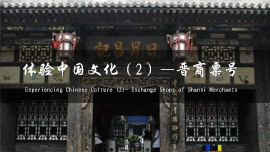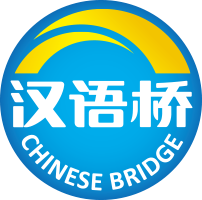Experiencing Chinese Culture
体验中国文化

Course Syllabus 课程章节
2Shanxi Merchants: Shanxi Merchants are Shanxi businessmen. In the Ming and Qing dynasties, Shanxi merchants had its heyday and once held the leading position of Chinese business. They were famous both at home and abroad for their wealth and business talent. For hundreds of years, they dealt not only in trade, but also in money. Through countless innovations, Shanxi merchants extended the original pawnshops into Qianzhuang, Yinju, Zhangju, Yinhao, Piaohao etc., and other forms of financial enterprises which can be seen as the old-style Chinese private bank. These exchange shops were spread all over the China and other Asian countries and even to some countries in Europe. Thereafter, Shanxi became the cradleland of China's banking industry. In the third year of Daoguang Period of the Qing Dynasty (1823 AD), a Li family in Dapu Village, Pingyao County, Shanxi Province, closed their long-operated pigment house. In the name of their "Sanduotang" hall, they invested 360000 tael of silver to set up a money exchange shop called "Rishengchang", which was in the South Street of Pingyao County. As a result, the problem of difficult silver trading has been solved, and it had become a convenient banking industry for people to exchange, deposit and withdraw money in other places at that time. Emperor Daoguang praised it as "Huitong the world", which means Shanxi merchants’ credit is accepted all over the world.




